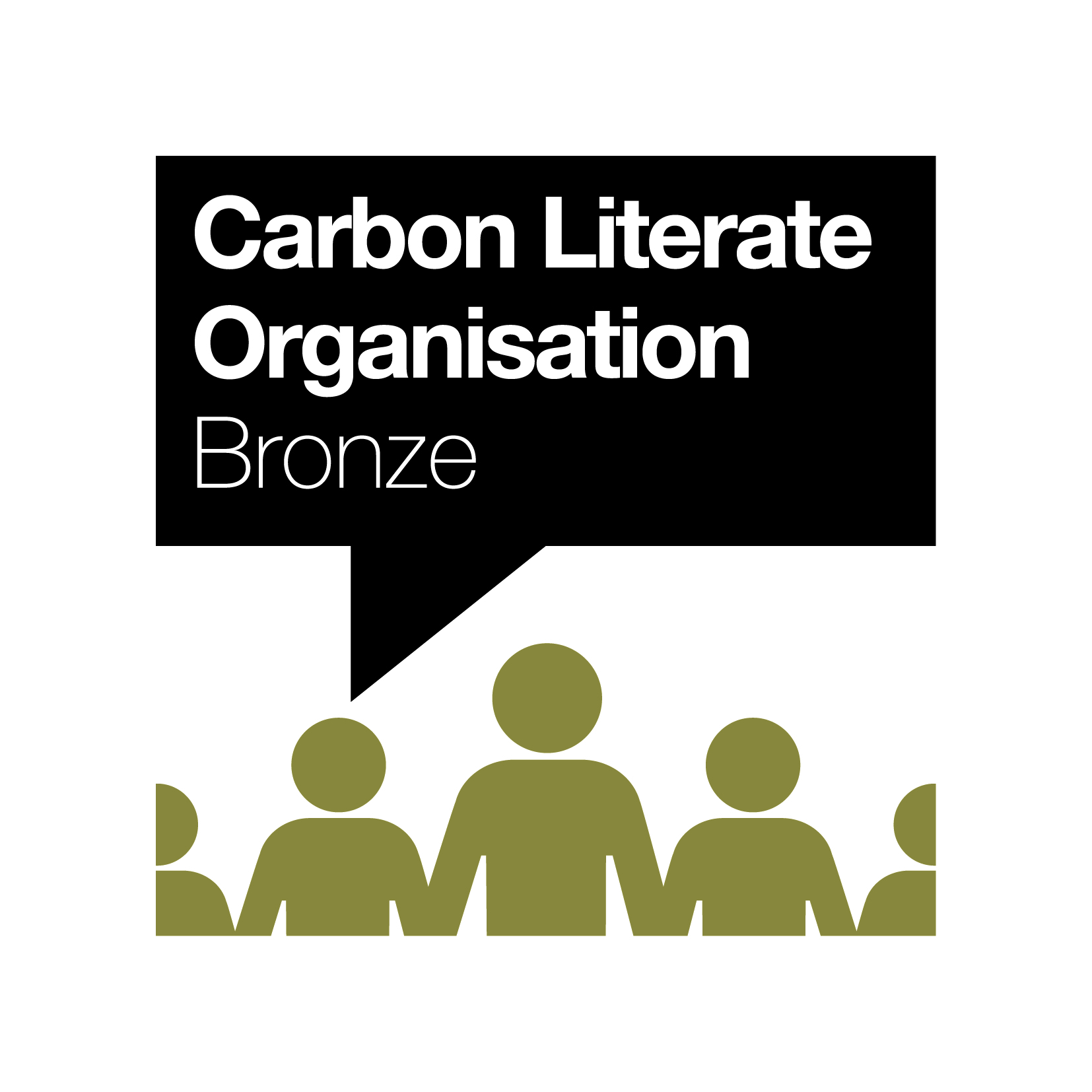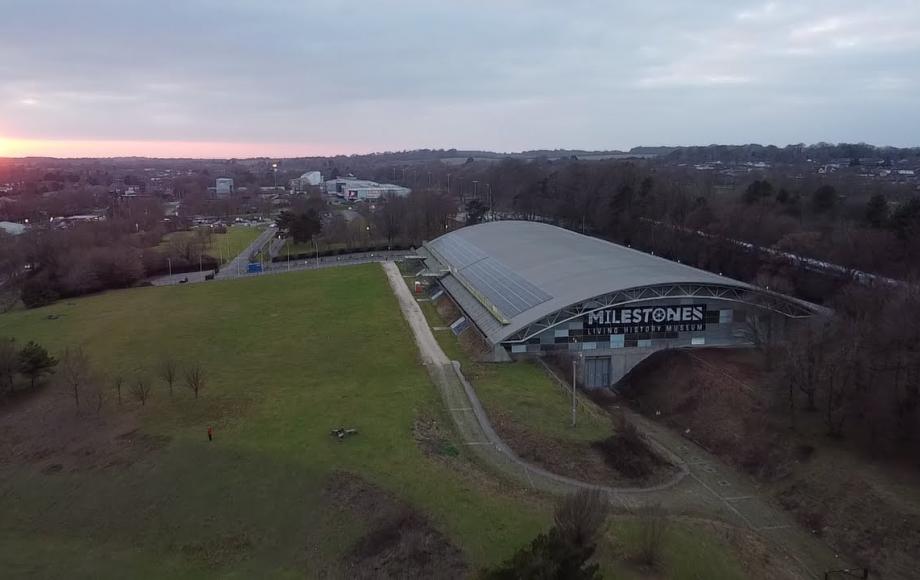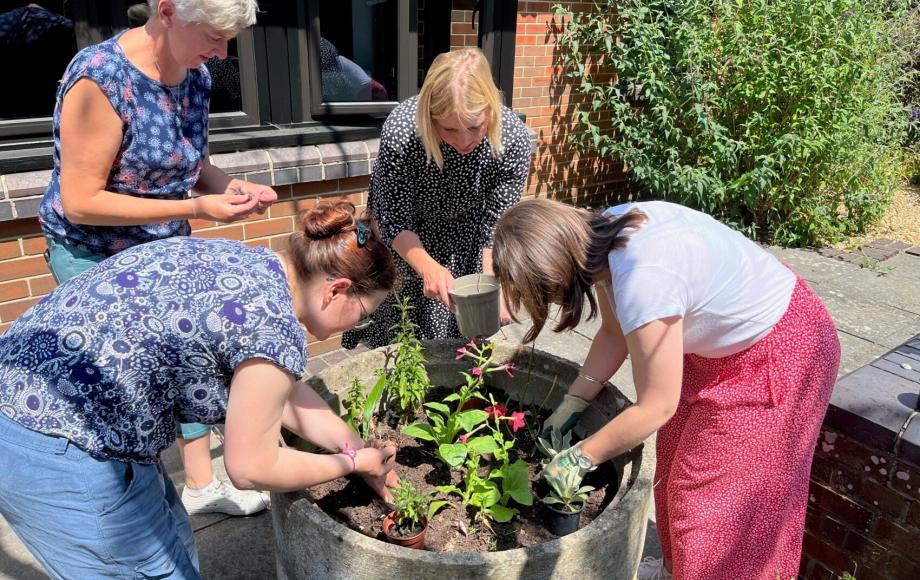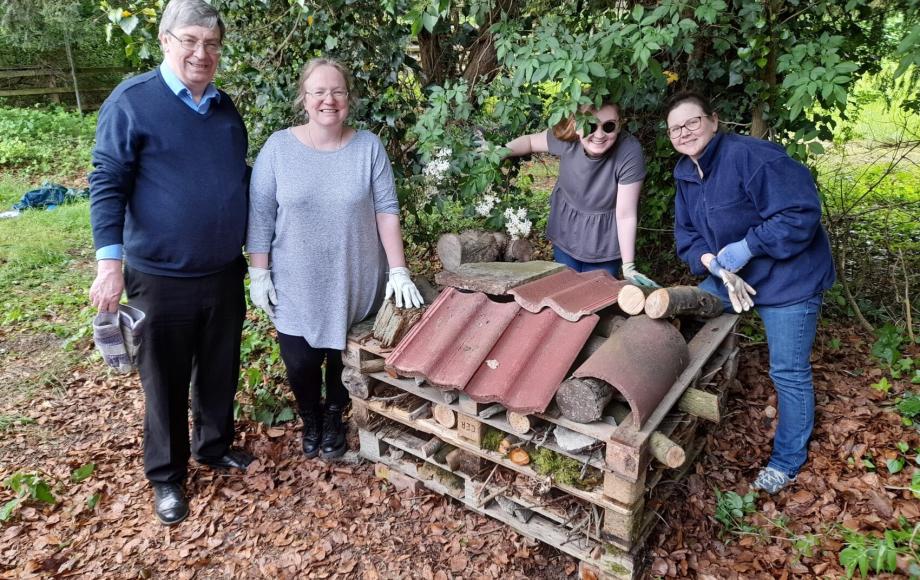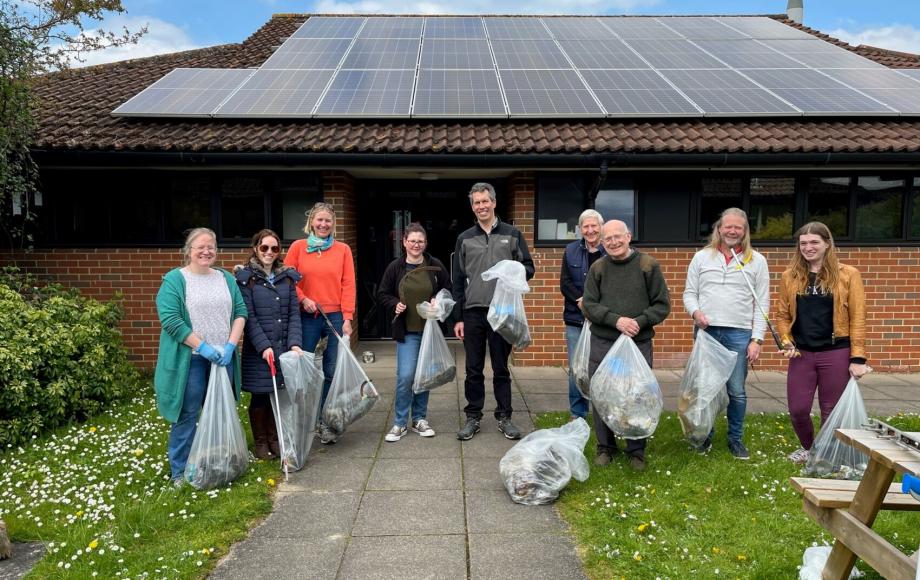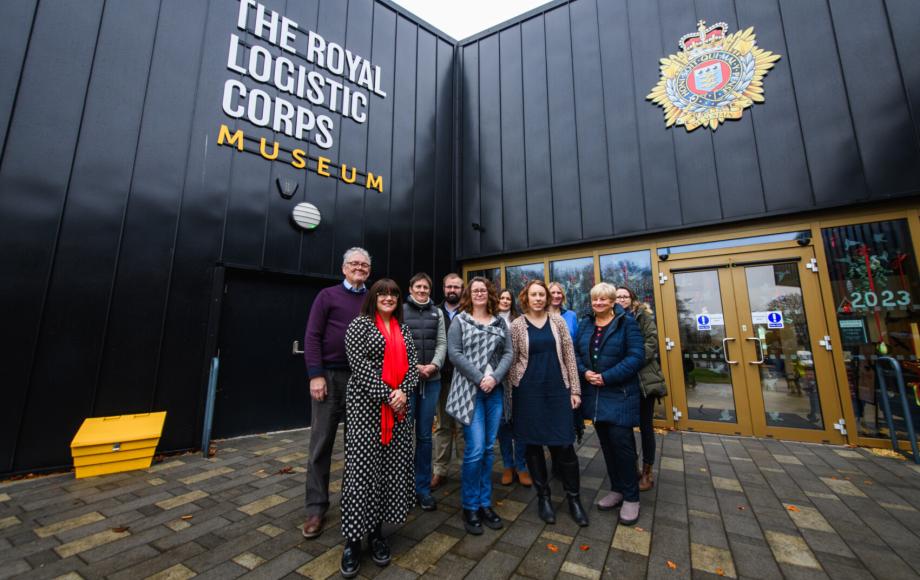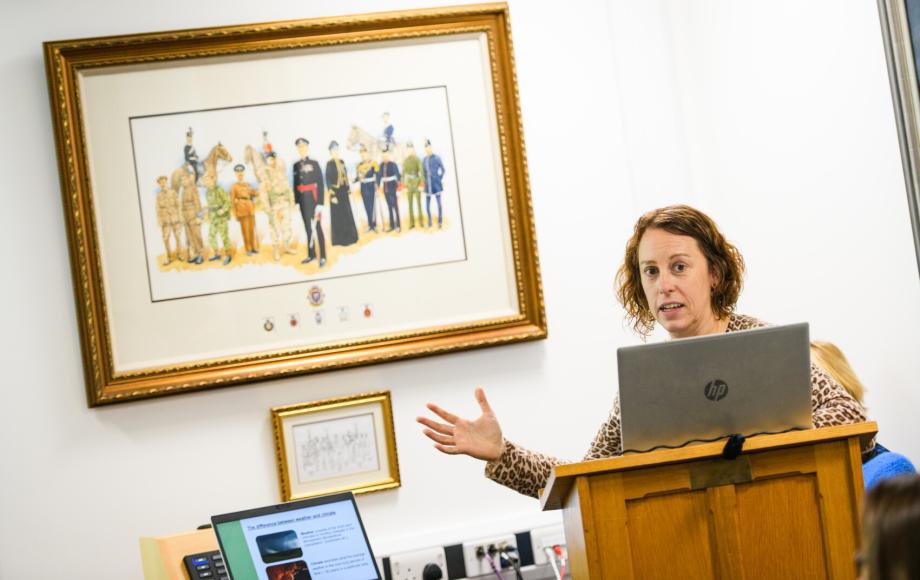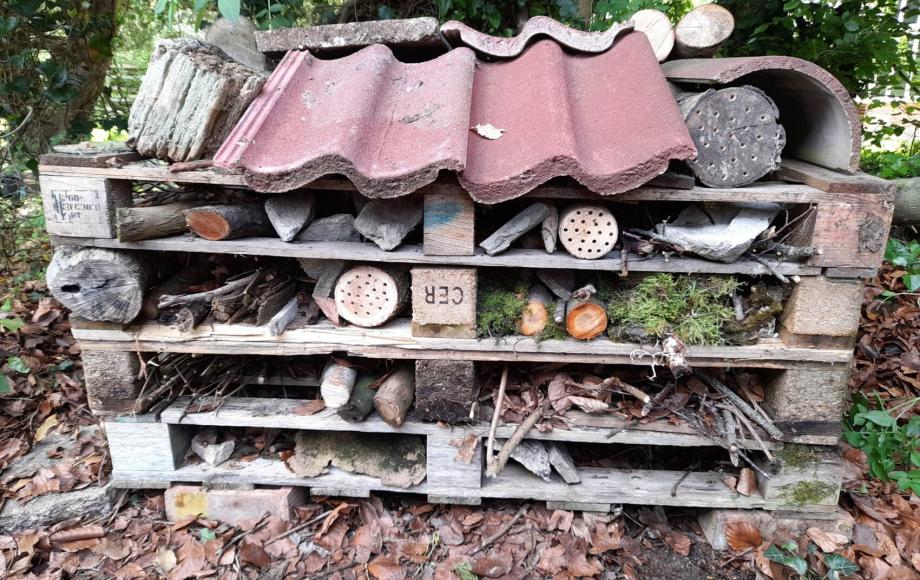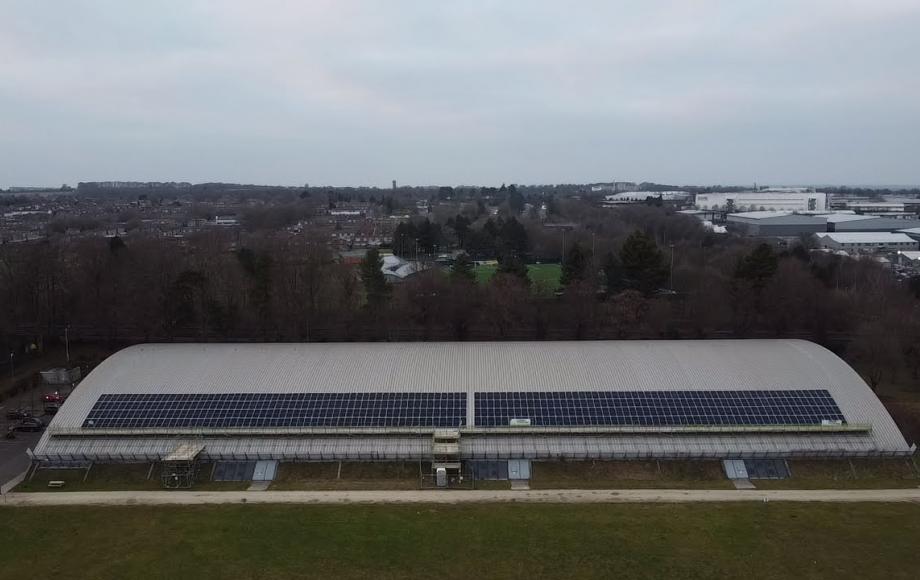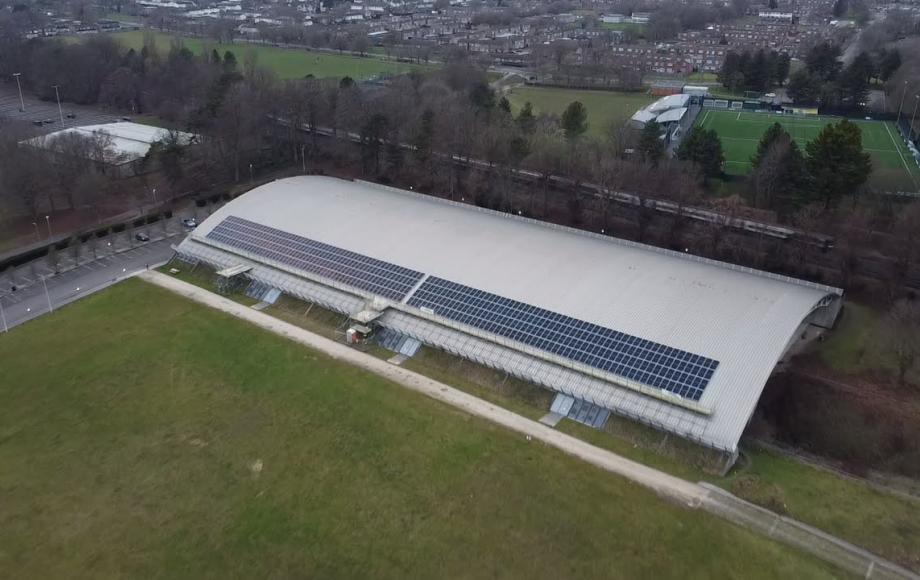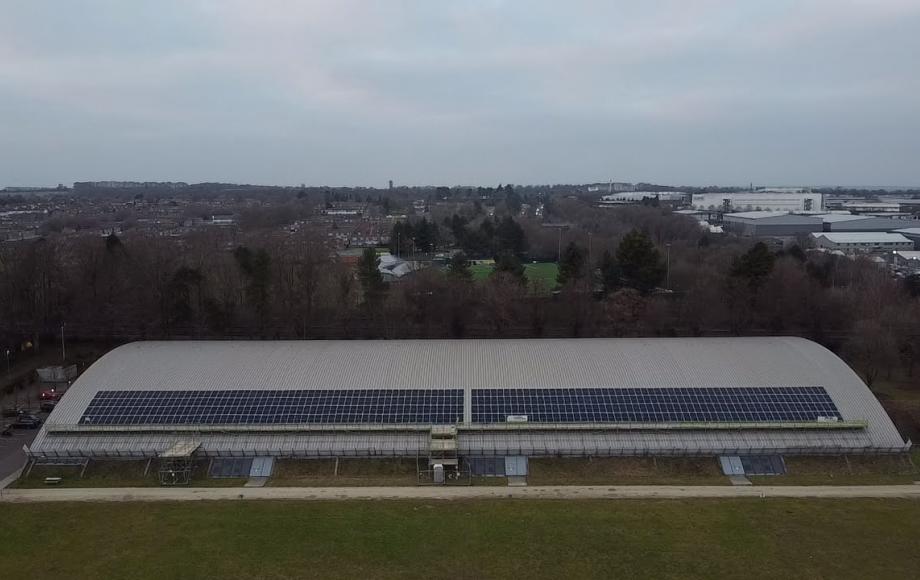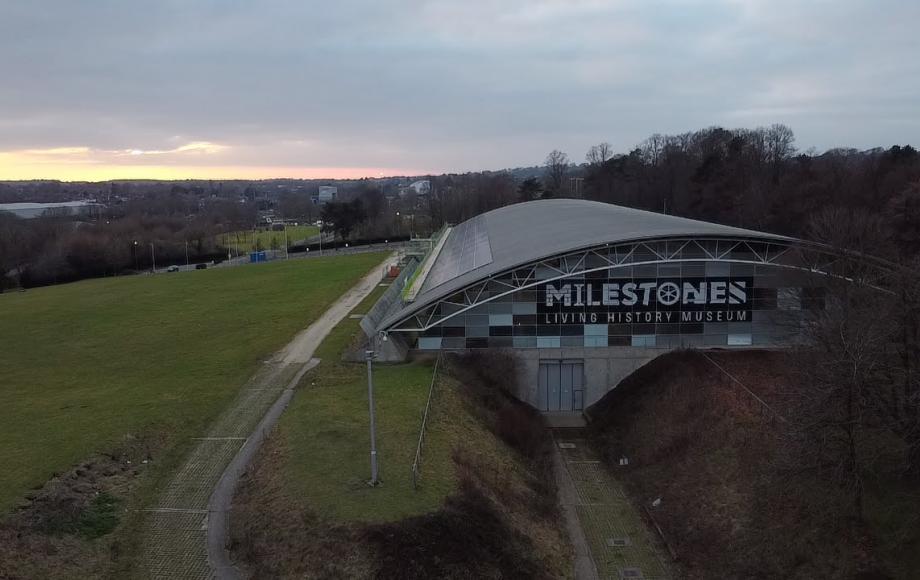Hampshire Cultural Trust believes that culture can play a key role in tackling one of the biggest issues facing our planet: climate change.
The trust is taking steps to increase education and awareness of climate change for our staff, volunteers and visitors, as well as actively seeking ways to protect the environment across the trust, both at our venues and on an individual level.
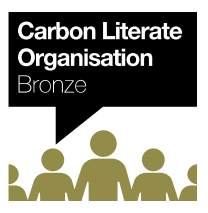
Our environmental policy supports the scientific community’s assessment that urgent climate action is needed. Hampshire Cultural Trust actively supports the United Nations Sustainable Development Goals (UN SDGs) agenda to set the world on a path to a sustainable future by 2030.
We are committed to protecting the environment and aim continually to improve the environmental performance of our activities. We want to promote climate action by engaging our stakeholders, staff, volunteers, visitors, audiences and communities.
Hampshire Cultural Trust is committed to achieving net zero (scopes one and two) by 2030. Meeting this target will be challenging and will rely in part on collaborative action with our local authority partners, but we are working hard towards achieving it. We are also committed to maximising engagement opportunities to promote climate action.
In order to achieve these aims, we are currently working to:
• Position sustainability as an integral part of our mission and purpose
• Reduce our energy, our emissions, our waste and our water consumption
• Measure and report on our carbon impacts
• Preserve and promote biodiversity in our outdoor spaces
• Encourage and adopt sustainable travel options
• Embed sustainable procurement in our purchasing policy
• Establish a programming commitment to engage our visitors and audiences in climate action
• Celebrate environmental successes and achieve environmental management certification
• Engage with our sector, stakeholders, staff and volunteers for climate advocacy
Our policy is endorsed at board level, is reviewed annually to confirm its ongoing suitability for our environmental commitments and forms part of our ongoing work to ensure we are in line with best practice.
Achieved Carbon Literate Organisation status
Installed 654 photovoltaic solar panels at four of our sites: Milestones Museum of Living History, Forest Arts Centre, West End Centre and Chilcomb House. This work was delivered in partnership with Hampshire County Council
Carried out energy audits at 13 of our sites
Installed new windows to improve energy efficiency at Rockbourne Roman Villa and Chilcomb House
Introduced a cycle to work scheme for staff
Conducted a biodiversity opportunity review to enable us to see where we have species at risk at our venues and pinpoint where we can make the biggest positive difference
Worked to recognise and reduce the environmental impact of our programming activities
Where it all began
Nitrile gloves are used for conservation work at Hampshire Cultural Trust (HCT). Conservators, Ruth James and Claire Woodhead, use these gloves regularly and have always tried to reuse them where possible. They felt strongly about reducing the amount of gloves thrown away and the impact of this on wildlife and the environment. They wanted to find an alternative where the gloves could be recycled.
Ruth approached some known recycling schemes but was told that HCT did not match the criteria to take part in these schemes. Ruth then started looking for alternatives and found Ellie’s Fund, which is an initiative run through the Yorkshire Brain Tumour Charity: Ellie's Fund Recycling - Yorkshire's Brain Tumour Charity (yorksbtc.org.uk).
Ellie’s Fund initiative turns everyday rubbish into money for brain tumour research – the biggest cancer killer of children in the UK. So far, the charity has raised a massive £65k through recycling things people use every day. All the money raised from recycling is allocated to Ellie’s Fund and is spent on brain tumour research projects in Yorkshire.
This seemed like a very worthy cause to support, so Ruth and Claire started to collect their gloves at the trust’s central venue Chilcomb House.
Glove recycling across the trust
Ruth and Claire, founding members of the Chilcomb Green Team shared this information with the group, who saw it as a great action to help reduce waste at the trust and work towards the trust’s scopes one and two net zero commitments. This action also helped to support one of the trust’s environmental objectives: to engage with their sector, stakeholders, staff and volunteers for climate advocacy.
After identifying a charity that would recycle the nitrile gloves, Ruth then contacted the venue teams and set up an internal process of collecting nitrile gloves at several of its venues. Led by the HCT collections team, nitrile gloves used when handling, cleaning and conserving collections are now recycled as part of a charity initiative.
A minimum consolidated weight of 8 kilogrammes of gloves must be collected to be sent off for recycling. This was the biggest challenge initially until all the trust’s venues were asked to donate their used gloves. It meant that gloves could be collected on a larger scale, getting closer to the 8k target.
With support from all of the trust’s venues, the Green Team successfully sent the first batch of gloves to the charity in January 2024. The gloves sent to Ellie’s Fund are sent off for recycling and made into secondary recycled goods such as benches and playgrounds. These items are then sold to raise money for the charity.
The outcome of the gloves collections couldn’t be more positive and HCT is now well on its way to a second 8kg load. The trust hopes, with the help of the rest of its sites and possible further connections: this will become an ongoing initiative.
Reaching out to external museums
In 2023, project managers Sinead Chan and Caroline Johnson presented at some external museum network events where the focus was environmental sustainability. HCT’s environmental progress was shared and this included the mention of the trust’s internal process around recycling nitrile gloves, which triggered interest from local museums and venues. Further interest was raised when several people asked if the trust’s internal process with the gloves could expand to a partnership opportunity. This feedback was shared with the environmental project team at the trust and it was decided that in 2024 HCT would look at introducing recycling bins for nitrile gloves at a number of its sites across Hampshire. The Green Team then contacted the Southeast Museum Development team with this update to share with external museums and venues.
The aim for 2024 is to connect with other Hampshire museums interested in working together to recycle nitrile gloves.
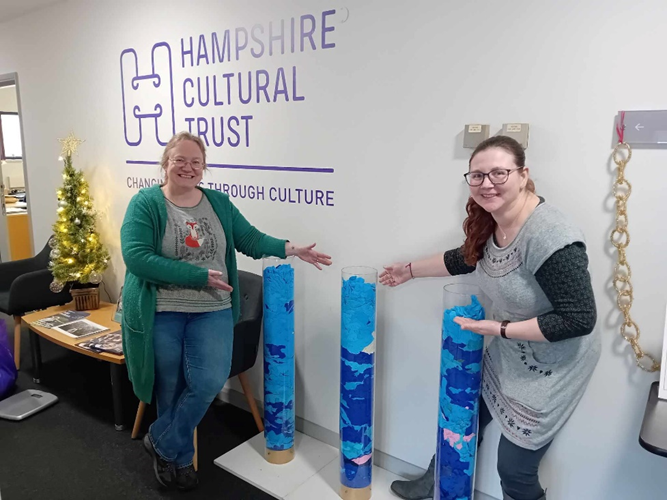
The Green Team – championing climate action
Growing out of internal conversations and a desire for positive change, in June 2022 a small group of Hampshire Cultural Trust staff came together with the intention of forming a Green Team. Their aim was to increase and improve sustainability and biodiversity by actioning and enabling change across HCT.
To start off with, the group was made up of members of staff from a number of Hampshire Cultural sites, but it was quickly realised that in these early stages, to action initial change, there needed to be a central focus on the trust’s Winchester head office. The group’s plan was to record processes and progress and to share outcomes with the wider organisation further down the line, encouraging the formation of additional, venue-based green teams and cascading learning.
One year on, the purpose of this case study is to give an overview of the Green Team’s achievements. The team hopes these outcomes will inspire and open up conversations with others across the trust who are interested in getting involved, whether centrally or at their own site.
The actions of the Green Team also form part of our wider Environmental Action Plan, where this pilot group comes under the objective ‘engaging with our stakeholders for climate advocacy’. The work of the team also taps into several other objectives, including ‘preserving and promoting biodiversity in our outdoor spaces’ and ‘encouraging and adopting sustainable travel options’.
The Green Team is currently made up of nine people who have all committed to fulfilling an action connected to their job role or a passion. The group meets monthly to keep on track with actions and undertakes practical activities such as gardening and litter picking during lunchbreaks.
It is important to note that none of these activities or implementations have required any additional budget, just planning and co-ordination, a little at a time.
Actions 2022-2023
Reducing and encouraging reduction in printing and paper use
The main focus for this action over the last year has been at Chilcomb, the trust’s head office in Winchester, and Milestones Museum in Basingstoke, the trust’s two sites with the largest print wastage. A monitoring system has been set up to track wastage and there has been a huge reduction in paper use so far.
Milestones has reduced the printing of posters by half, which would otherwise have been wasted, and they have also stopped producing PVC vinyl banners. Chilcomb is one of our biggest waste sites for leaflets; the marketing team has cut this right back to 100 copies from 1,000 copies for the latest print run of seasonal event leaflets. This will continue to be improved and tracked in 2024.
“I feel we all have a responsibility on an individual level to play our part in taking steps towards a more positive and sustainable future. Even in small changes, we can and will make an impact.”
Erin Standing, Product Marketing Manager
Recycling nitrile gloves
The Green Team was looking at further ways to reduce waste. Led by the collections team, nitrile gloves, which are used when handling, cleaning and conserving collections, are now being kept and recycled as part of a charity initiative. The team is asking all venues to follow the same process, keeping nitrile gloves used in venue and adding them to the accumulation of gloves already collected. The team needs 8kg before they can be recycled.
“I want to be part of the push to get Hampshire Cultural Trust as sustainable as possible and create a better environment for ourselves and the creatures we share our sites with. I am most interested in waste reduction, energy saving and in gardening and planting both for biodiversity and for improving our surroundings and our wellbeing.”
Claire Woodhead, Conservator
Introduction of e-bikes
An e-bike scheme was requested following a staff survey, where interest was expressed in having e-bikes accessible for those staff working in Winchester, either at the trust’s head office or in a venue. Foldable e-bikes were leased from local business The Cycling Company, allowing users of all proficiency to access the scheme in a comparatively hilly urban environment - this was particularly important as none of our venues have changing room facilities or showers. The e-bikes provide an excellent ‘no sweat’ alternative to driving into the city centre, saving time and money as well as boosting wellbeing.
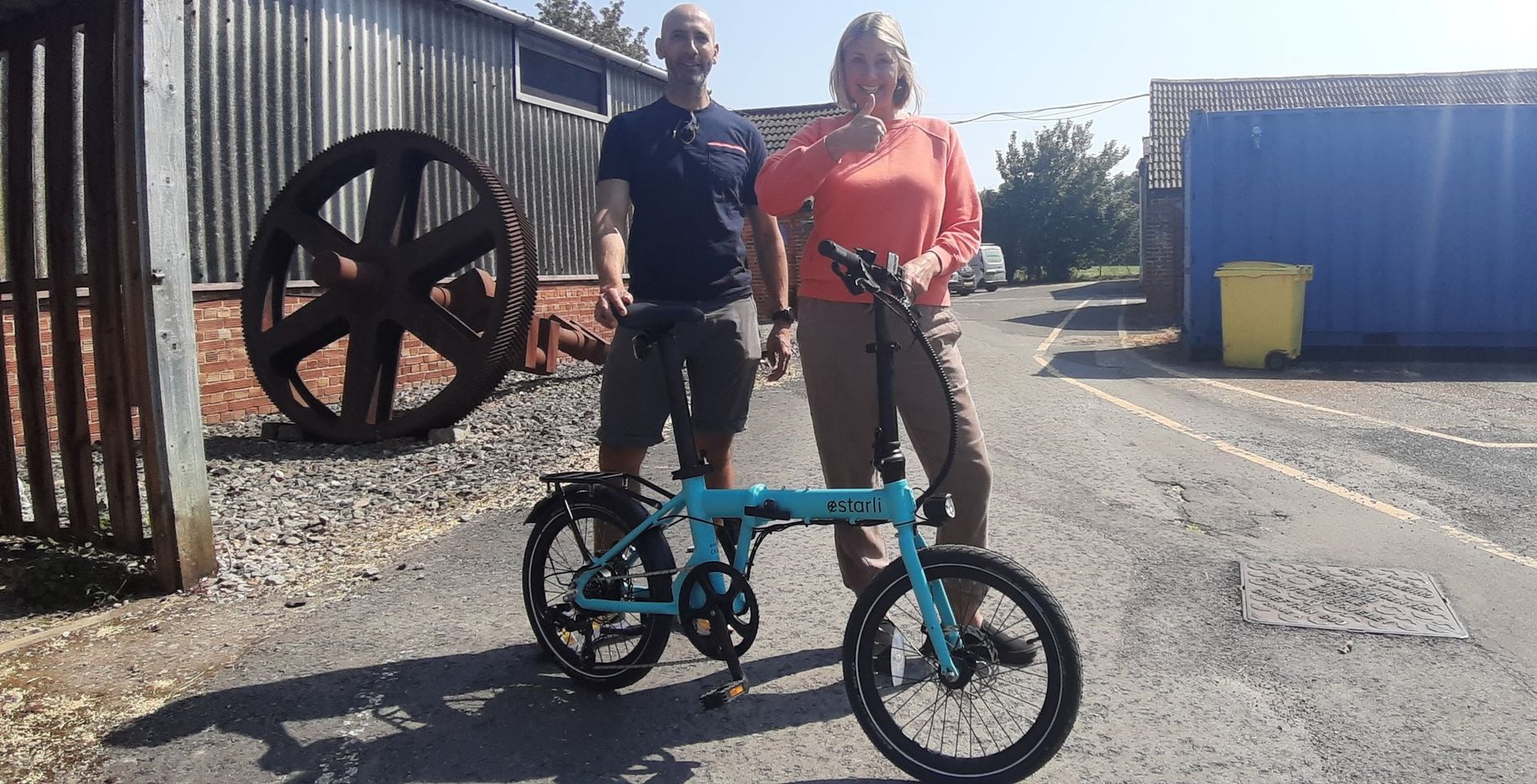
Biodiversity
The Green Team has been working on biodiversity enhancement opportunities that were outlined in HCT’s 2022 biodiversity report, produced by the trust’s energy and environmental consultants, Pilio. The team has been busy creating and putting up bird and bat boxes made from repurposed off-cuts from the technicians’ workshops and which are now installed near Hampshire Wardrobe and at the back of the Old House. They have also built a bug hotel from suitable materials salvaged across the site and there are plans to build more in different areas to encourage a greater range of invertebrates.
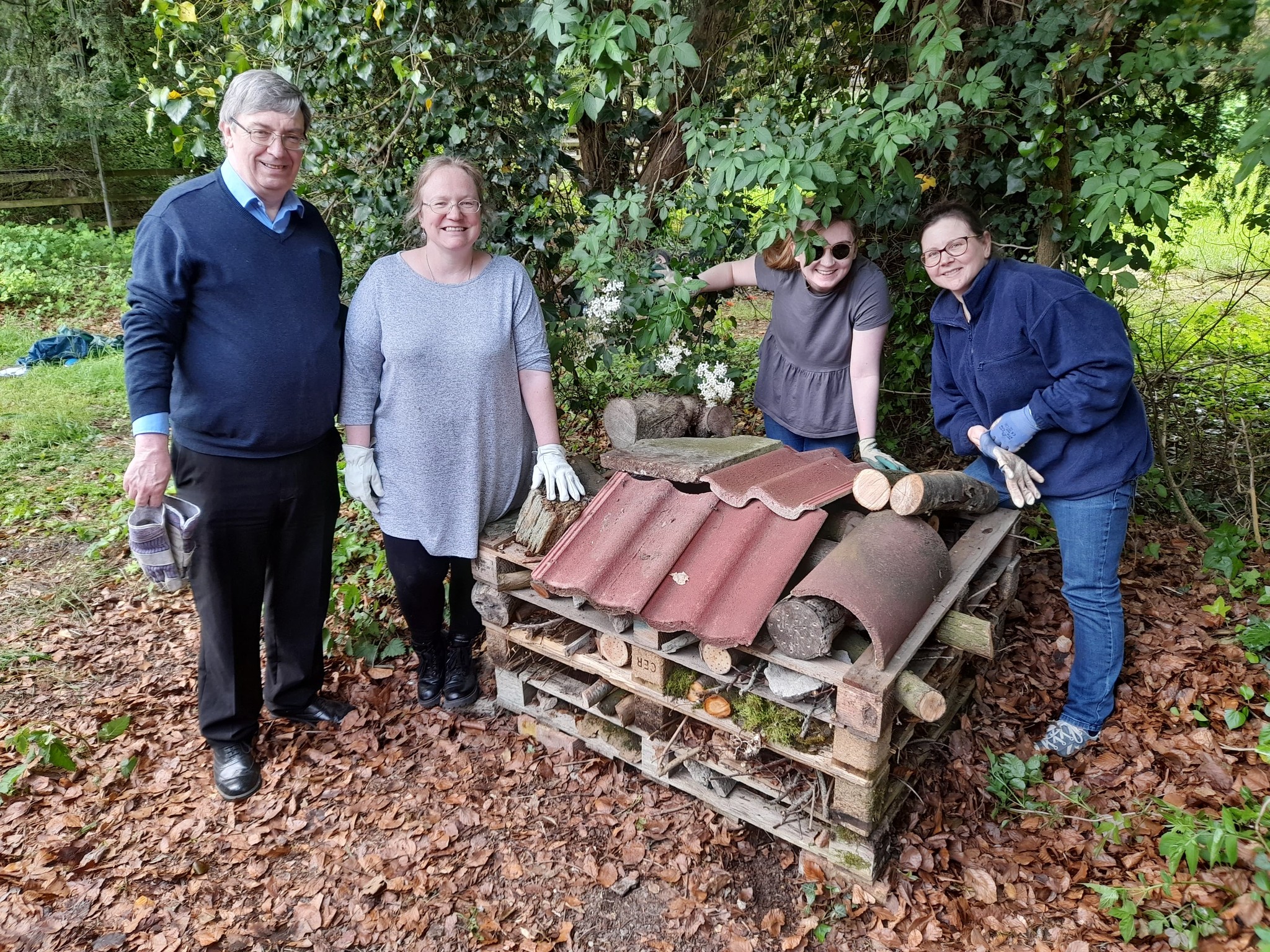
The Green Team has been working on biodiversity enhancement opportunities that were outlined in our 2022 biodiversity report, which was produced by the trust’s energy and environmental consultants, Pilio. The team has been busy creating and putting up bird and bat boxes, made from repurposed off-cuts from our technicians’ workshops, and which are now installed on site. They have also built a bug hotel from suitable salvaged materials salvaged and there are plans to build more in different areas to encourage a greater range of invertebrates.
The team created a gardening plan for the year including tasks such as dividing and replanting snowdrops, new planting to increase the habitat and food sources, creating both soft woodland and scrubby edges to provide resources for birds and insects, scouting for compost heap locations, positioning old rubbish bins to work as water butts and collecting water from dehumidifiers used in rooms and buildings that house our collections.
Nature walks
“Knowledge sharing is always key to great results.”
Emma Matthars, Customer Service Executive
Nature 'walk and talks' have been launched. These are designed to facilitate the exchange of insights gained from Green Team activities and enhance awareness of environmental sustainability and climate change among our staff and volunteers. The outdoor, informal sessions provide a unique platform for staff and volunteers to discuss their experiences, explore sustainable practices and collectively deepen their understanding of these critical issues. The knowledge acquired during these walk and talks isn't limited to the workplace but can also be readily applied at home, encouraging positive changes both at home and in the community. This holistic approach ensures that the principles of eco-consciousness and environmental stewardship become an integral part of both professional and personal daily life, creating a more sustainable future for all.
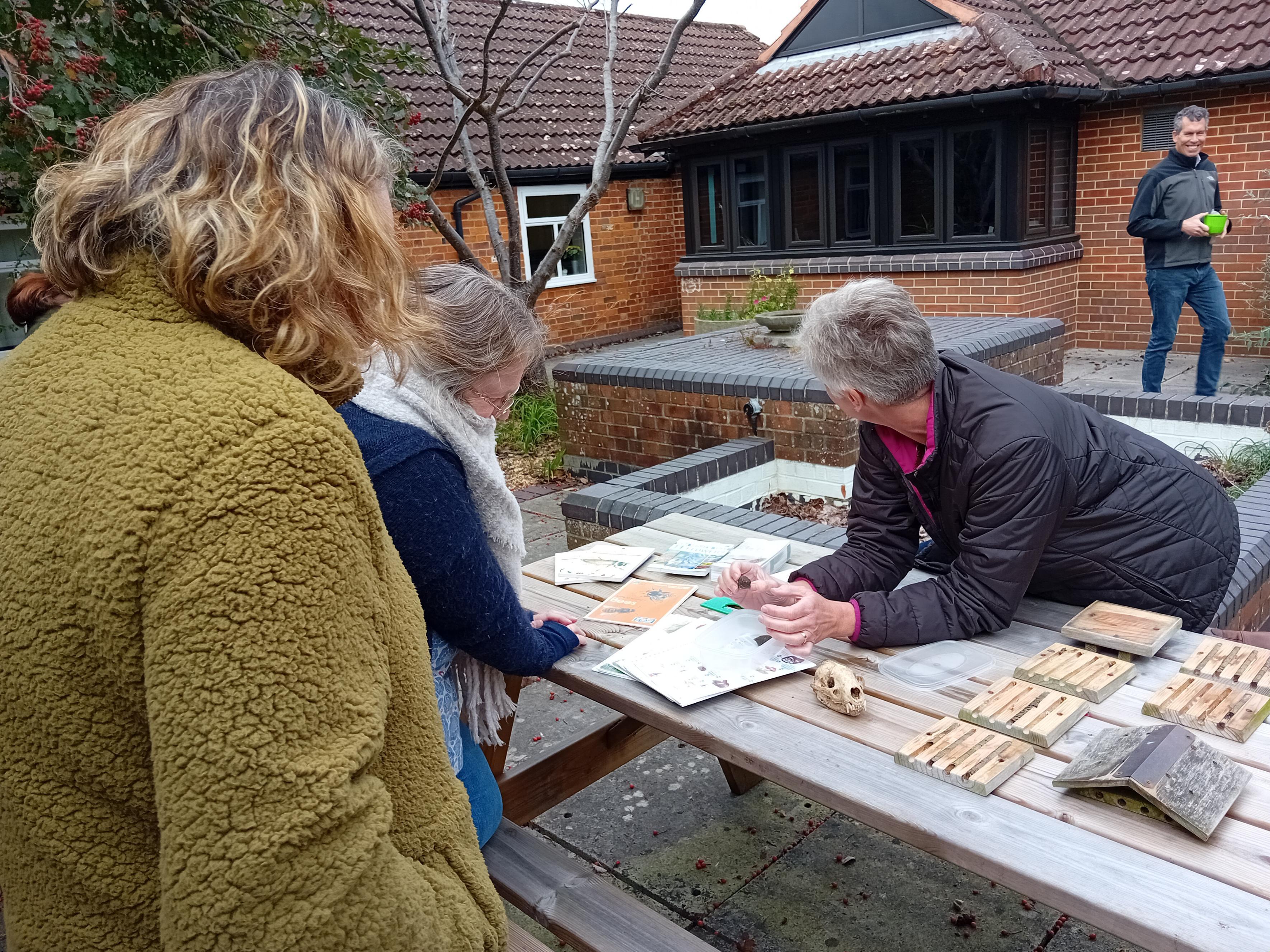
Litter picking
Since the formation of the Green Team, regular litter picking sessions have taken place at the trust’s head office in Winchester. These sessions aim to prevent plastics and waste from entering both the landscape and food chain, as well as making the site a better place to work.
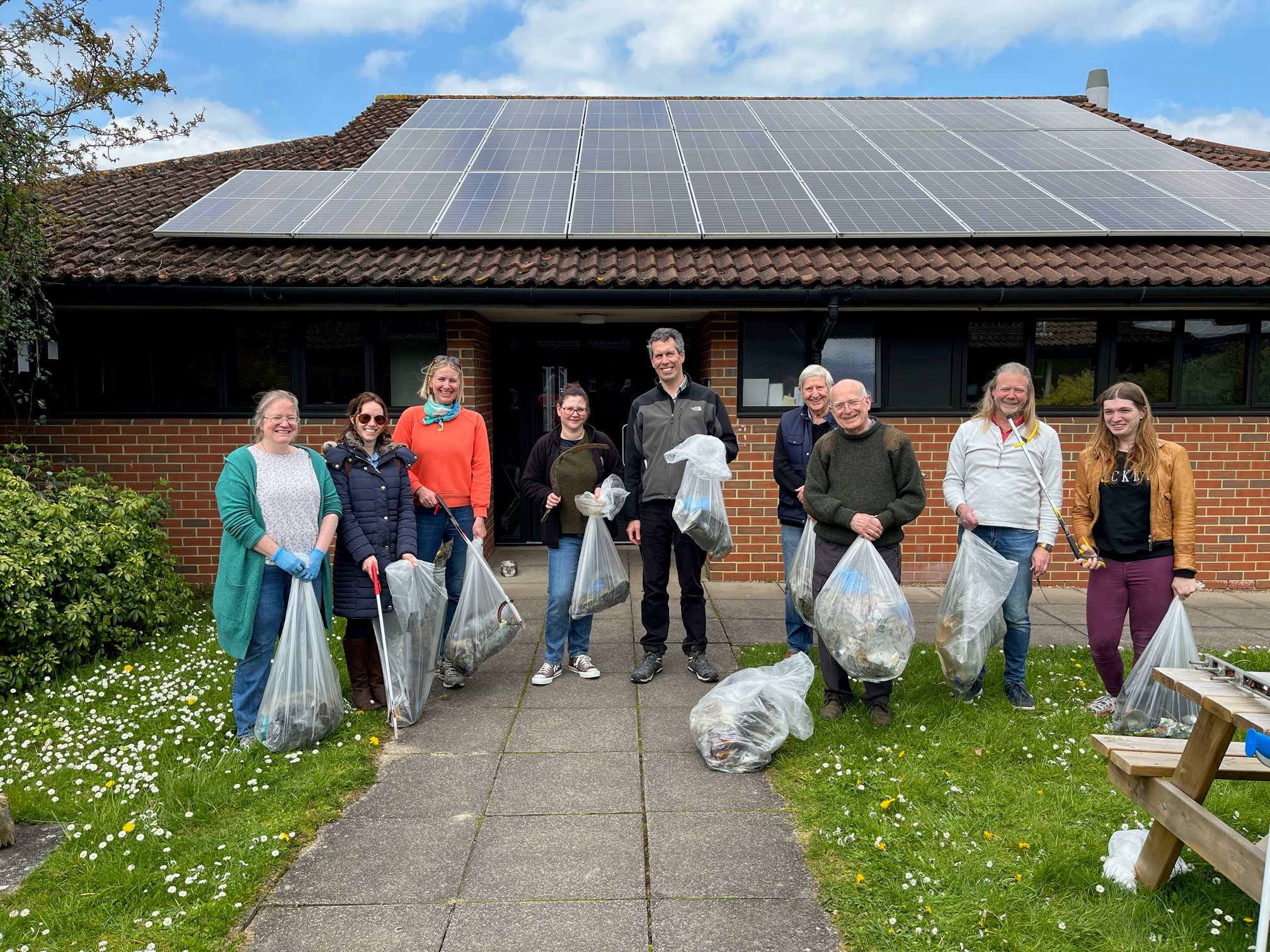
The impact
The advantages of these activities extend beyond their obvious positive impact on biodiversity and sustainability; they also offer a unique opportunity for active engagement. Gardening and spending time outdoors are widely recognized for their profound, positive effects on mental health and overall wellbeing. The Green Team ensures that everyone across the site is encouraged to participate, utilising internal communication platforms to make sure everyone is aware of the sessions. Both staff and volunteers who may not be Green Team members have embraced these activities, expressing their enjoyment of the experience.
In addition, Chilcomb’s appearance has improved. This enhancement not only fosters a more pleasant and aesthetically appealing work environment but also contributes to the wellbeing of our staff, volunteers and visitors. It also creates a positive impression of both the site and Hampshire Cultural Trust.
The Green Team's pilot initiative has proven to be an outstanding success, achieving remarkable results in a relatively short timeframe with a limited number of people. And the team hasn’t finished yet. The hope is that this work at Chilcomb will inspire other Hampshire Cultural Trust sites to embrace the ethos of sustainability and environmental stewardship.
In June 2022, Hampshire Cultural Trust was given bronze accreditation from the Carbon Literacy Project and became the first museum organisation in the south to achieve Carbon Literate Organisation status.
A Carbon Literate Organisation (CLO) is recognised by The Carbon Literacy Project as having a substantial commitment to Carbon Literacy. A CLO accreditation supports the development, recruitment and retention of a Carbon Literate workforce and requires an organisation to engage positively with its audience and community in developing and delivering low carbon behaviour.
Results from other CLOs suggest that a CLO will typically experience a decrease in energy and resource consumption, improved organisational profile, healthier and happier staff, a healthier working environment, a safer supply chain, lower variable costs, enhanced competitiveness and reduced commercial risk. CLO accreditation also demonstrates an organisation’s corporate social responsibility in the clearest possible way.
Carbon Literacy training provides staff with an understanding of the basic science of climate change and how it is affecting us both globally and locally. It gives staff an understanding of how climate change can affect museums and the impact that museums can have on tackling it, as well as ensuring that staff have the knowledge and skills to develop their own responses to lowering both their own and the carbon footprint of others.
In December 2023, Hampshire Cultural Trust took part in Carbon Literacy Project's annual Carbon Literacy Action Day. The day saw online training delivered to staff, trustees and volunteers and the trust's first delivery of external training at the Royal Logistics Core Museum.
Hampshire Cultural Trust is continuing its Carbon Literacy path, with the aim of achieving Gold Carbon Literate Organisation status during 2024. This requires the majority of the workforce to be Carbon Literate.
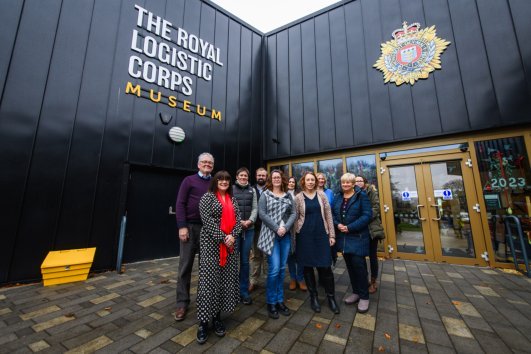
In February 2024, we collaborated with museum training, networking and events organisation - Museum Next, to share our sustainability journey so far ahead of their Green Museums Summit.
The result was a new article, Climate-Focused Culture: Fostering Climate-Empowered Workforces, written by our Head of Projects and Facilities, Caroline Johnson.
Click here to read the full article.
Over a five-month period, starting in September 2021, 654 photovoltaic solar panels were installed at four of our sites: Milestones Museum of Living History, Forest Arts Centre, West End Centre and Chilcomb House. Funding for the project was secured by Hampshire County Council from the government’s Public Sector Decarbonisation Scheme, which offers 100% funded grants for public sector organisations to fund energy efficiency and heat decarbonisation projects in public buildings.

